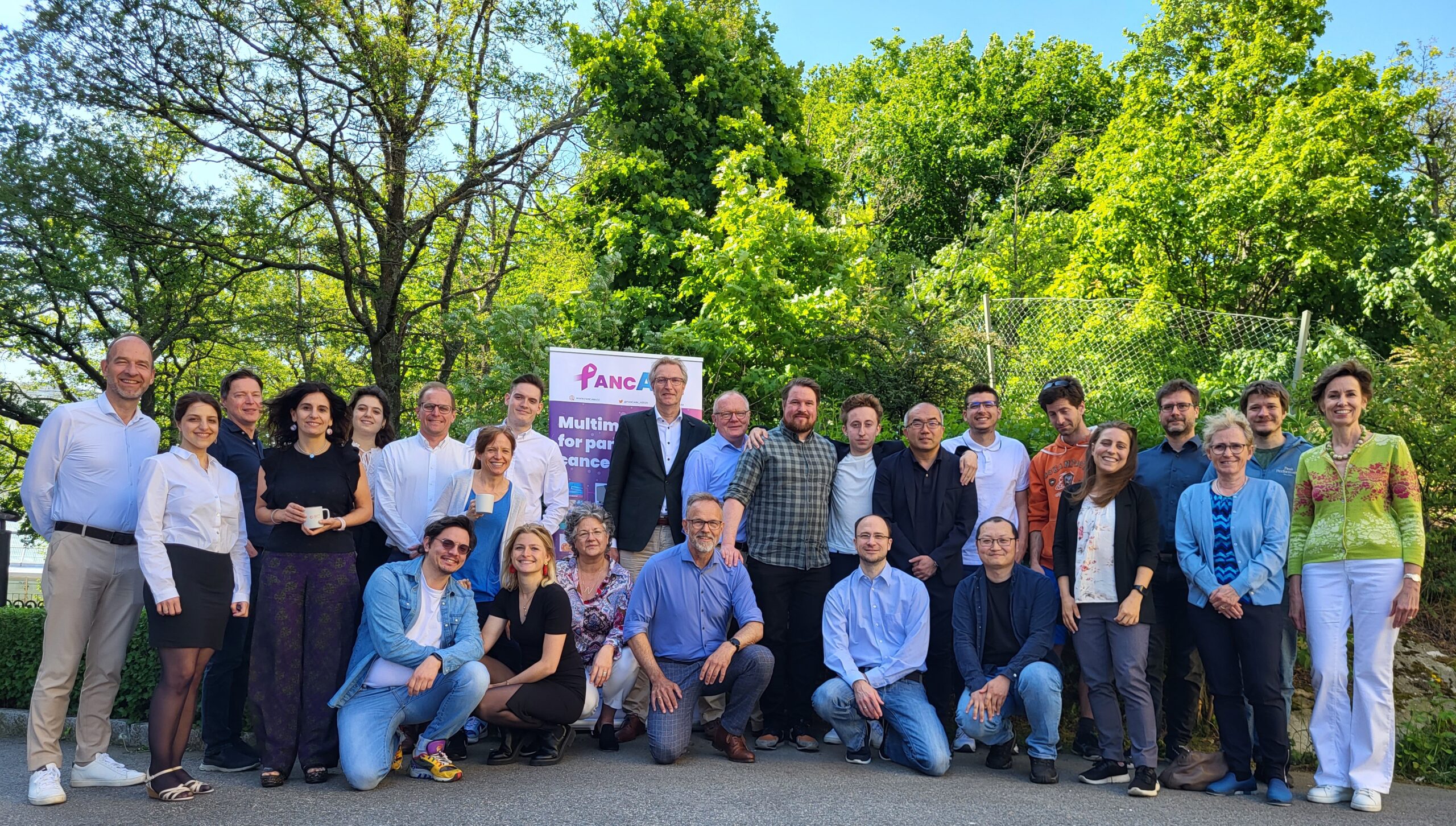From 8-9 June, our project consortium met in Stockholm for the project M30 meeting, hosted by Karolinska Institute. Partners presented the activities and updates of the past six months, and engaged in many discussions during the sessions as well as lunch and coffee breaks.
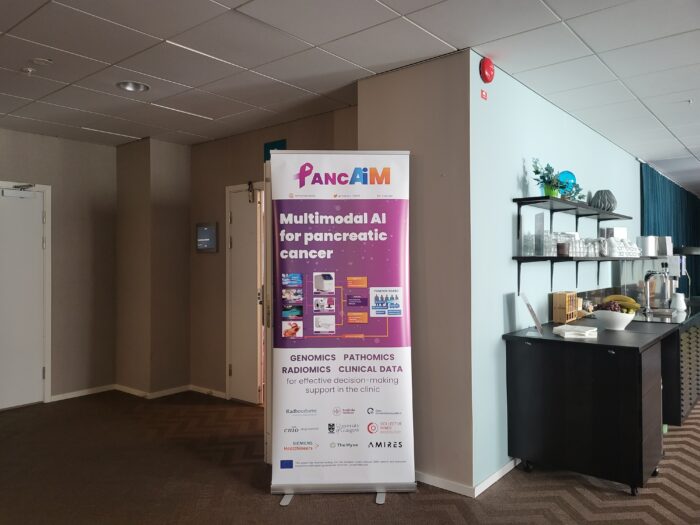
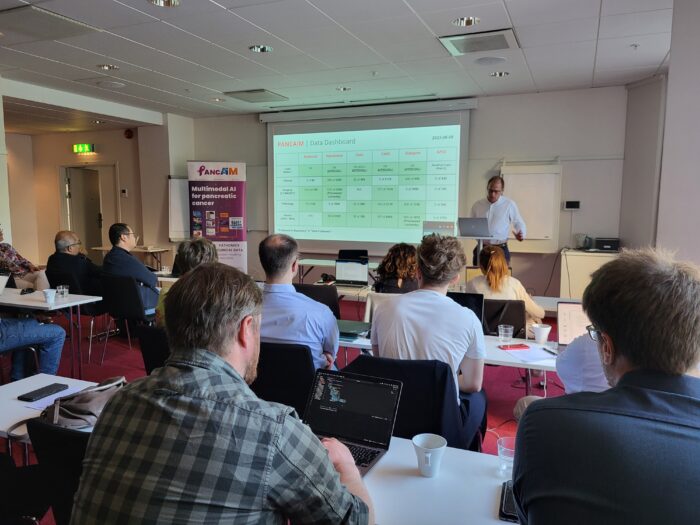
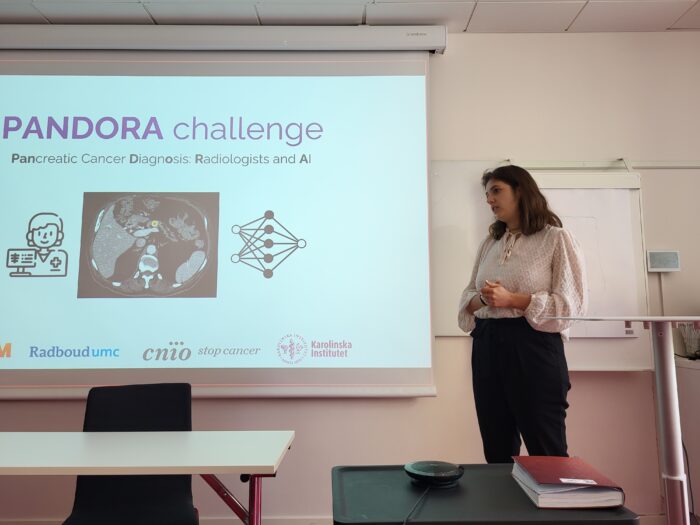
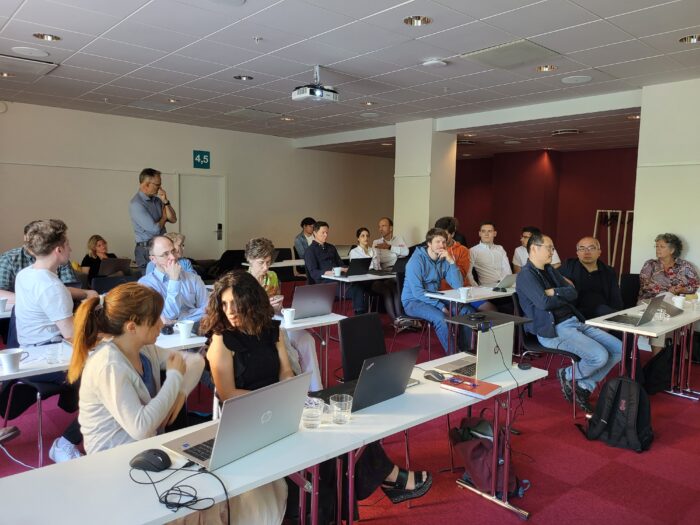
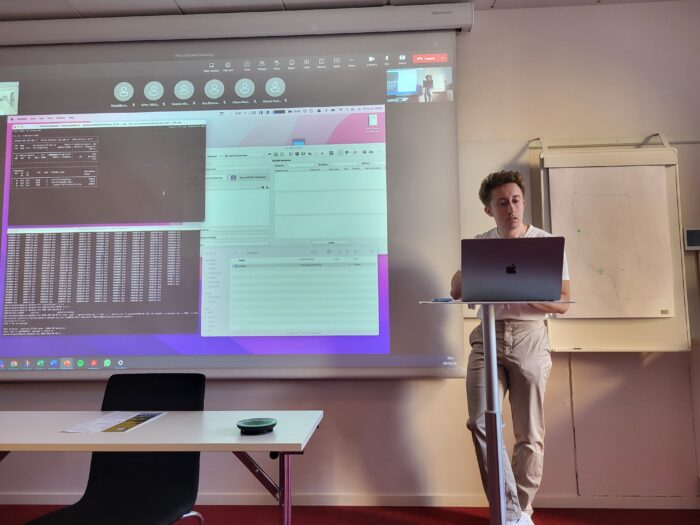
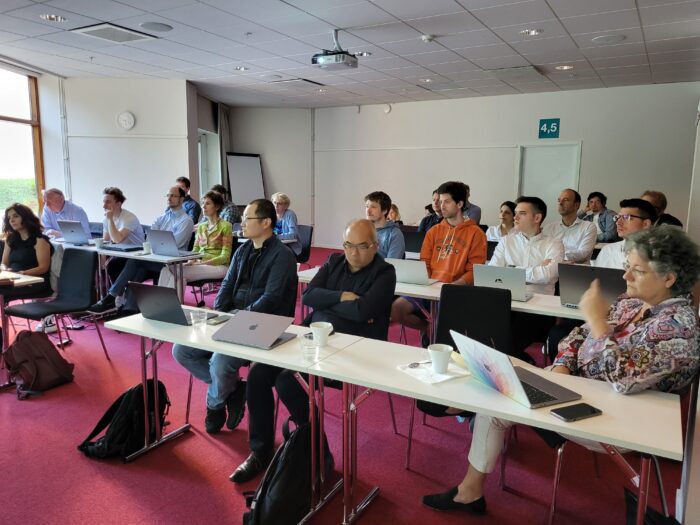
Key highlights and updates included:
PANCAIM Repository: The PANCAIM repository is up and running, and transfer of data from clinical sites to the platform has progressed significantly. By incorporating a wide range of data types on pancreatic cancer, including radiology and pathology imaging, clinical records, and genomics data, we are building a rich and valuable resource to empower groundbreaking research and analysis during the project and beyond.
Unimodal AI Algorithm Development: Team members presented substantial advancements in developing AI algorithms that leverage individual data modalities to identify relevant AI biomarkers that compute quantitative research features. These algorithms, among others, have the potential to contribute to early detection and accurate diagnosis for pancreatic cancer and better understanding of the disease. Check out the first one – “Pancreatic Ductal Adenocarcinoma Detection in CT” – which was developed at Radboud and is now publicly avaiable on the GrandChallenge platform!
Multimodal AI Algorithm Development: In addition to the unimodal AI models, we are making first steps in the development of AI algorithms that integrate multiple data modalities. By combining radiology, pathology, clinical, and genomics data, these algorithms, in the long term, aim to significantly enhance diagnostic accuracy, survival predictions and offer personalized treatment recommendations for pancreatic cancer patients. In particular, a principled learning approach will be developed to integrate and model the multi-modal data for constructing explainable AI-based prediction algorithms. To solve the challenges posed by heterogeneous data modalities, integrated algorithms will be developed that enable further feature selection and interpretation, critical for extracting novel insights from the AI models and make them more accessible to translational researchers and clinicians.
Algorithm Validation and Clinical Deployment: Rigorous validation of our AI algorithms is a top priority and absolutely crucial before deploying them in real-world clinical settings. Therefore, we are starting to plan the validation of our algorithms to ensure that developed models achieve the highest levels of effectiveness, precision, and reliability. Accuracy of developed models will be assessed to estimate the prognosis of individual patients at diagnosis, to predict treatment response and to evaluate treatment. To this end unseen data in the repository from ongoing prospective multicentre clinical trials will be used for the validation, and different clinical trials consortia whose data can be incorporated in the PANCAIM infrastructure will be approached as additional validation sets for specific clinical questions. The most promising AI algorithms developed in the project, which have demonstrated their capability to predict clinically relevant outcomes, will be integrated within an established healthcare platform and validated in an environment that resembles a routine clinical application as closely as possible.
Sustainability planning and exploitation: In addition, we are actively discussing and trying to identify solutions that will support the continued growth and impact of our research and activities, and therefore ensure the long-term sustainability of the PANCAIM project and its results. We are also exploring possible ways for the inclusion of additional data sources to our repository, sharing access to gathered data to researchers.
Looking ahead to 2 more years: Undoubtedly, there is lots of work still to be done in the project, but we are happy to slowly but steadily be moving towards our objective of providing unique new digital tools for PDAC clinicians which will help them to estimate the prognosis of individual patients at diagnosis, predict treatment responses, evaluate treatment progress and support clinical decision making.
Thanks to our hard-working consortium for the productive meeting and good collaboration in this demanding project!
